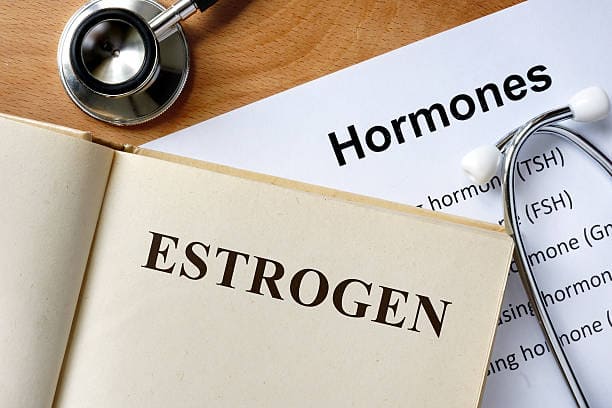Menorrhagia, commonly known as a heavy period, is a condition that affects countless individuals worldwide. Despite its prevalence, many remain unfamiliar with its intricacies. In this comprehensive guide, we delve into the depths of menorrhagia to shed light on its causes, symptoms, and management strategies.
What is Menorrhagia?
Let’s start with the basics. Menorrhagia refers to abnormally heavy or prolonged menstrual bleeding that disrupts a person’s normal activities. While some degree of blood loss during menstruation is normal, excessive bleeding characterized by soaking through sanitary products in a short period or needing to change pads or tampons every hour is indicative of menorrhagia.
Causes of Menorrhagia
Understanding the underlying causes of menorrhagia is crucial for effective management. Several factors can contribute to this condition, including:
- Hormonal Imbalance: Fluctuations in estrogen and progesterone levels can disrupt the menstrual cycle, leading to heavy periods.
- Uterine Fibroids: Benign growths in the uterine wall can increase menstrual bleeding.
- Polyps: Noncancerous growths in the lining of the uterus can cause heavier periods.
- Endometriosis: A condition where the tissue that normally lines the uterus grows outside of it, often resulting in heavy menstrual bleeding.
- Adenomyosis: A condition where the tissue that lines the uterus grows into the muscular wall of the uterus, leading to heavy periods and severe cramps.
- Pelvic Inflammatory Disease (PID): Infections of the female reproductive organs can cause inflammation and heavy menstrual bleeding.
- Certain Medications: Blood thinners and hormonal medications may contribute to menorrhagia.
Symptoms of Menorrhagia
Recognizing the symptoms of menorrhagia is essential for prompt diagnosis and management. Common signs include:
- Excessive Bleeding: Needing to change pads or tampons every hour or experiencing bleeding that lasts longer than seven days.
- Passing Large Blood Clots: Blood clots larger than a quarter may indicate menorrhagia.
- Fatigue: Excessive blood loss can lead to fatigue and weakness.
- Shortness of Breath: In severe cases, heavy menstrual bleeding can cause shortness of breath.
- Anemia: Prolonged menorrhagia can lead to iron deficiency anemia, characterized by symptoms such as pale skin, weakness, and dizziness.
Diagnosis and Treatment
Seeking medical evaluation is crucial for diagnosing and managing menorrhagia effectively. A healthcare provider may perform a combination of the following diagnostic tests:
- Pelvic Exam: A physical examination to assess the health of the reproductive organs.
- Blood Tests: To check for anemia or underlying medical conditions.
- Ultrasound: Imaging tests to evaluate the uterus and ovaries for abnormalities.
- Endometrial Biopsy: A procedure to collect a sample of the uterine lining for analysis.
Treatment options for menorrhagia vary depending on the underlying cause and severity of symptoms. They may include:
- Medications: Nonsteroidal anti-inflammatory drugs (NSAIDs) or hormonal medications to regulate menstrual bleeding.
- Hormonal Therapy: Birth control pills, hormonal IUDs, or other hormonal treatments to regulate the menstrual cycle.
- Nonhormonal Medications: Tranexamic acid or other medications to reduce menstrual bleeding.
- Surgical Procedures: Endometrial ablation or hysterectomy may be recommended for severe cases of menorrhagia that do not respond to other treatments.
Lifestyle and Home Remedies
In addition to medical treatments, several lifestyle modifications and home remedies can help manage menorrhagia:
- Healthy Diet: Consuming iron-rich foods such as leafy greens, lean meats, and fortified cereals can help prevent anemia associated with menorrhagia.
- Iron Supplements: In cases of iron deficiency anemia, iron supplements may be prescribed to replenish iron stores.
- Exercise: Regular physical activity can improve overall health and may help regulate menstrual cycles.
- Stress Management: Stress can exacerbate menorrhagia symptoms, so practicing relaxation techniques such as deep breathing, meditation, or yoga may be beneficial.
- Heat Therapy: Applying a heating pad to the abdomen can help relieve menstrual cramps associated with menorrhagia.
When to See a Healthcare Provider
While menorrhagia is common, it should not be ignored, especially if it significantly impacts daily life. Seek medical attention if:
- Bleeding is Excessive: If you need to change pads or tampons every hour or if bleeding lasts longer than seven days.
- Symptoms are Severe: If you experience symptoms such as fatigue, shortness of breath, or passing large blood clots.
- Interference with Daily Activities: If Heavy Periods disrupts your ability to work, attend school, or engage in regular activities.
- New Onset: If you experience sudden onset of heavy periods or other concerning symptoms.
Conclusion
In conclusion, menorrhagia or heavy periods can significantly impact an individual’s quality of life. Understanding the causes, symptoms, and treatment options is essential for effectively managing this condition. Whether through medication, lifestyle modifications, or surgical intervention, there are numerous ways to address menorrhagia and alleviate its symptoms. Remember, seeking prompt medical attention and working closely with healthcare providers can lead to better outcomes and improved well-being for those affected by Heavy Periods.

